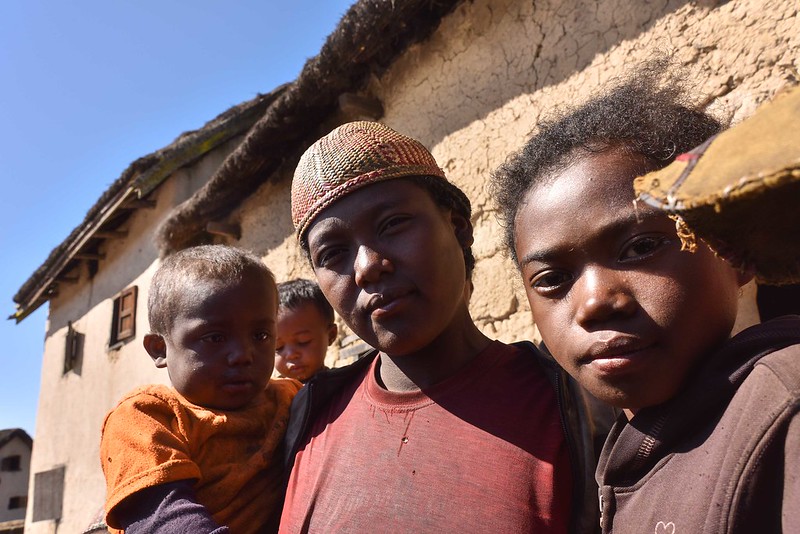The Impact of COVID-19 on Poverty in Madagascar

Madagascar, an island enriched with a culture of religious diversity, castes and classes and growing tourism, is the fifth poorest country in the world. In fact, the pandemic has raised Madagascar’s poverty rates from 75% to 78%. The impact of COVID-19 on poverty in Madagascar has been significant but the country is working to slow the spread of the virus.
Before the Pandemic
Prior to the COVID-19 pandemic, Madagascar was seeing an economic boom with a growth rate of 4.9% in 2019, its highest level in over a decade. The country made such economic progress largely due to an increase in exportation activity. Despite significant improvements, barriers such as inadequate infrastructure, lack of competition in key sectors, poor governance and slow progress in human capital development continued to restrict further economic growth in Madagascar.
During the Pandemic
The impact of COVID-19 on poverty in Madagascar has restricted global trade and hindered Madagascar’s major industries. This sent the country into a sudden, spiraling recession. Madagascar’s economic progress has faced a sharp decline due to the pandemic. The country is dealing with a GDP deflation of -4.2%. This economic loss is due to unemployment and other poverty-causing factors such as loss in trade and tourism revenue.
From 2017-2019, Madagascar’s unemployment rate was 1.7%. This rate increased to 1.9% in 2020. Madagascar’s current total number of COVID-19 cases is 42,216, far fewer than many other African countries. However, the CDC classifies Madagascar as having very high levels of COVID-19 cases, as cases have been rising recently.
A deeper look at pandemic caused factors that are affecting Madagascar’s economy and increasing poverty rates:
- Drop-in Exports – Madagascar’s strongly developing mining industry contributed to its economic growth. The country produces about 6% of the world’s nickel, cobalt and ilmenite. Nickel prices have reached an all-time low, causing Madagascar to close its plant and drop exports. The Chinese and U.S. markets, which in sum take in 25% of Malagasy exports, closed during the pandemic as well, limiting Madagascar’s export opportunities. The closure of Chinese and U.S. markets limited Madagascar’s export opportunities.
- Tourism – More than 45,000 Madagascar residents work directly in the tourism industry. Since the start of 2020, Madagascar has lost about half a billion dollars in tourism revenue. As a result, those who worked in the industry are facing the prospect of poverty. “Overnight, we pretty much had zero tourists,” says Thierry Rajaona, chairman of the Madagascar Business Group, in an interview with Africanews.
- Containment Measures – Enforced governmental restrictions on movement keep those susceptible to poverty in place. This prevents people from seeking jobs or accessing markets. These precautionary governmental regulations help keep cases under control but contribute to further food and housing insecurities and increased poverty.
The Future
Although the impact of COVID-19 on global poverty in Madagascar continues to be a prevalent problem, getting Madagascar back to a state of economic growth is a reachable goal for a lot of groups. A group of private Magalyze companies holds optimistic goals for the future, expecting Madagascar to achieve a 5% growth rate through the collaboration of public authorities. Rebuilding Madagascar’s economy requires political governmental action to mobilize domestic resources and stimulate Madagascar’s struggling but essential industries.
The World Bank estimates that Madagascar will gradually recover by 2023. During this recovery time, mass testing and contact tracing should help reduce the effects of the pandemic. President Andry Rajoelina made a statement in March 2021 against mass vaccinations, calling for an “herbal remedy.” The World Bank says that a vaccination-centered campaign is necessary to ensure that the country does not experience a resurgence of cases. Vaccination is among the most effective ways to help developing countries recover from the economic, health and social impacts of COVID-19.
As of June 2021, 0.68% of Madagascar’s population has received at least one dose of the vaccine. In early May 2021, Madagascar received its first batch of 250,000 COVID-19 vaccinations because of the global COVAX initiative, which plans to cover vaccines for 20% of Madagascar’s population.
Solutions
UNICEF has been working to combat the impact of COVID-19 on poverty in Madagascar through holistic efforts. In May 2021, UNICEF received 200 new oxygen concentrators which Madagascar used to help those suffering from COVID. These oxygen concentrators will help COVID-19 healthcare as healthcare facilities in Madagascar often run out of medical supplies. Additionally, UNICEF is working to rebuild Madagascar through advocacy that addresses malnutrition, healthcare access and poverty. These sectors of advocacy are interconnected as 60% of those living in Madagascar live over 5 km from a healthcare facility and often lack reliable transportation and roads to reach such facilities. Access disproportionately affects those living in poverty and has links to gender and literacy inequalities as well.
The Ministry of Public Health is working with UNICEF to promote public engagement and communication in relation to COVID-19 risks. This includes updating databases and preparation plans to deal with further cases and the next winter period.
Founded in 1999, SEED Madagascar (Sustainable, Environment, Education & Development) is a charity dedicated to addressing Madagascar’s distinct needs through sustainable development. SEED has already reached over 2,380 community members through COVID-19 informational sessions and 16,533 people on proper handwashing demonstrations. The organization has been working to train health workers and school teachers on COVID-19 prevention.
Looking Ahead
Prior to COVID-19, poverty rates in Madagascar were dropping as its economy grew. This growth stunted once the pandemic hit Madagascar’s communities. As the GDP fell, more and more civilians stumbled into poverty because of job loss and health expenses. Various organizations have been partnering with Madagascar’s government to lift people out of poverty and help the country reduce COVID-19 outbreaks and deaths. As trade networks strengthen and the tourism industry picks up again, leaders are hopeful of returning growth to Madagascar’s economy and further reduction of poverty rates.
– Sarah Eichstadt
Photo: Flickr
